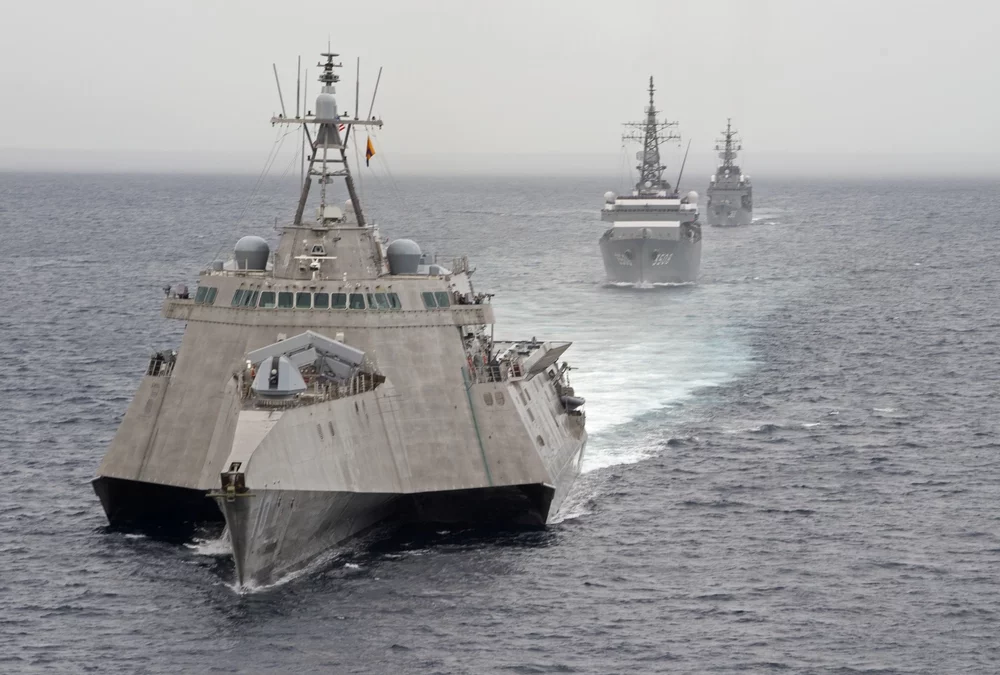Blog

Connor Freeman Interviewed on Cold War 2.0 by Reed Coverdale and David Spuria
Earlier this month, I did a series of interviews covering a wide range of foreign policy topics with the great Reed Coverdale and David Spuria.
On the Naturalist Capitalist, Reed and I discuss the continuity between the Trump and Biden administrations, highlighting Washington’s aggressive polices that could lead to war with Russia, China, and Iran. We also have a conversation about early influences, as well as becoming libertarians and antiwar activists. We discuss the failures of the Trump administration, what happened to John McCain/Hillary Clinton style hawks, and how Bernie Sanders was always a fraud. Of course, we talk about neocons and in particular Josh Rogin’s Washington Post piece calling for concurrent confrontations with Moscow and Beijing.
This interview was conducted on August 14th.
In my interview with David Spuria, we talked about the Ukraine war, the risks of increasing sabotage attacks inside Crimea, and the possibility of disaster due to shelling aimed at the Russian-controlled Zaporizhzhia Nuclear Power Plant (ZNPP). We also cover Washington’s policy of attempting to bleed Russia in a 1980s Afghanistan style proxy war of attrition. We discuss Western interventions to thwart diplomacy and kill potential peace talks between Moscow and Kiev, plus some recent escalations with China. This interview took place on August 20th.

Scott Horton on CSPAN2 Book TV for Hotter Than the Sun 8/28-8/29
Scott Horton, our Director and host of the Scott Horton Show, will be on CSPAN2 Book TV discussing his new book Hotter Than The Sun: Time to Abolish Nuclear Weapons.
This interview took place at FreedomFest last month and airs today (6:05pm EDT) and tomorrow (6:05am EDT). The video will be archived later at the CSPAN2 website.
Hotter Than the Sun contains interviews conducted over more than a decade with experts of all descriptions — including Daniel Ellsberg, Seymour Hersh, Gar Alperovitz, Hans Kristensen, Gordon Prather, Joe Cirincione and more — about the threat of nuclear war between major and minor powers, the nuclear arms-industrial complex, the nuclear programs and weapons of the so-called “rogue states” of Iraq, Iran, Syria, Israel and North Korea, the bitter truths and eternal lessons of America’s nuclear bombing of Japan in World War II and the dedicated activists working to abolish the bomb for all time.
Buy the book and listen to the full Scott Horton Show – Hotter Than the Sun interview playlist here.

New Pentagon Office Has Orwellian Name
Washington’s official propaganda outlet Voice of America reports on the new Orwellian named Pentagon agency tasked with reducing civilian deaths. The “Civilian Protection Center of Excellence” will receive a tiny fraction of the Pentagon’s $800 billion budget.
The announcement came a year after a US drone strike in Kabul annihilated an innocent Afghan family. The Pentagon initially claimed the bombing was “righteous.” It was later exposed that the strike killed an aid worker and seven children.

Sen. Marsha Blackburn Travels to Taiwan, Third Congressional Visit this Month
Reuters reports Senator Marsha Blackburn arrived in Taiwan on Thursday. House Speaker Nancy Pelosi traveled to Taipei in August, setting off a massive escalation with China. Blackburn is the third Congressional delegation to visit Taiwan this month.
Beijing views the high-level visits from US officials as violations of its sovereignty. China’s military has conducted several unprecedented military maneuvers in response to Pelosi’s visit.

A Third of Vets Get Booked into Jail at Least Once
A new study from the Council on Criminal Justice finds “roughly one third of veterans report having been arrested and booked into jail at least once in their lives, compared to fewer than one fifth of non-veterans.”
Military.com reports on the causes for vets getting arrested at a higher rate.
The think tank explained that “the reasons underlying veterans’ justice-system involvement are complex, ranging from combat-related risk factors to ‘bad-paper’ discharges that bar VA benefits,” as well as “inconsistent diversion mechanisms.”
“Service-related trauma and other legacies of deployment push too many veterans on a path toward incarceration,” Hagel said in the announcement. “We can and must do more to understand and interrupt that trajectory.

Navy Fights With Congress to Decommission Little Crappy Ships
Jeff Schogol of Task & Purpose details the battle between the Department of Defense and Congress over the future of the Littoral Combat Ship program. The Pentagon is seeking to scrap five of its LCS, including four ships that are less than five years old. However, some in Congres are seeking to prevent the ships from being scrapped.
The Littoral Combat Ship USS St. Louis was just commissioned in August 2020, but the Navy wants to decommission the vessel in September 2023, just after the ship’s third birthday.
For the moment, Congress is blocking the Navy from decommissioning the St. Louis and four other Freedom-variant Littoral Combat Ships: USS Fort Worth, commissioned in September 2012; USS Billings, commissioned in August 2019; USS Wichita, commissioned in January 2019; and USS Indianapolis, commissioned in October 2019.
Ergo, the Navy is in a quandary. The service remains locked in a forced marriage with its newest Freedom-variant Littoral Combat Ships even though the Navy is so fed up with the vessels that Chief of Naval Operations Adm. Michael Gilday has suggested giving or selling the ships to South American countries.

Taiwan Sending Armed Drones to Ukraine Through Poland
Taiwanese outlet CM Media reports Taipei is sending arm drones to Kiev. The outlet reported Poland is being used as a cutout.
Dronevision’s Revolver 860 is a vertical takeoff and landing rotor drone capable of carrying eight mortars, according to the Taiwan-based manufacturer.
The manufacturer revealed that it sold the drones to a Polish buyer and that the unmanned platform was then forwarded on to Ukraine.
Citing a company representative, Taiwan News revealed that sales to Poland increased in March and have been steadily increasing.










